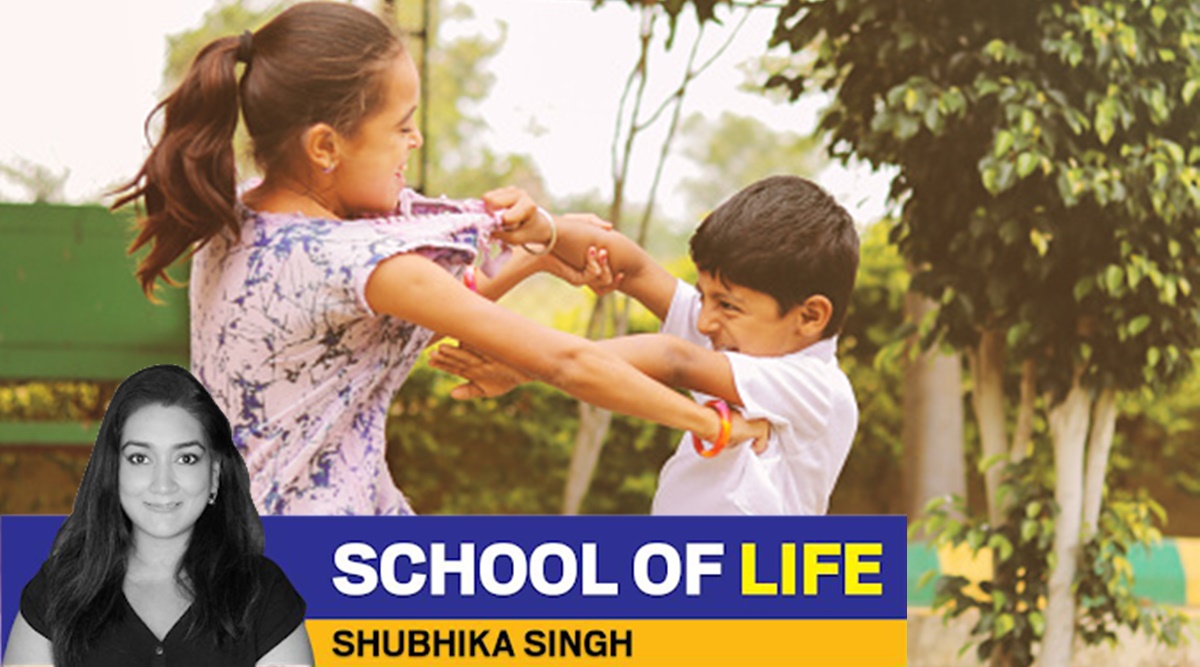4 amazing ways to end sibling rivalry
Children grow out of this friction as they mature, but sometimes these bonds do not strengthen over time
 Here are four ways by which you can end sibling rivalry (Source: Istock)
Here are four ways by which you can end sibling rivalry (Source: Istock)Diwali and festivities come with happiness, cheer and stress. At home, when children are on holidays, the house is peaceful if they’re hanging out and playing together but it can get chaotic if they’re yelling and pulling each other’s hair! If this sounds like your home, you will find the suggestions below helpful in ending this tension and rivalry among them. Parents with children across all ages (youngling, preteen or teenagers), opposite genders or the same-sex gender, can incorporate the recommendations below. Like most areas in parenting, you are better prepared to handle issues if dealt with proactively rather than brushing them under the carpet.
Your children probably have very different talents and personalities. Yet, they are often compared to each other and put in situations to forcibly get along. Often, they live in the shadow of their sibling, hearing comments at home and school such as, “Your sister is such a good student. You should be like her.” “Your brother makes me proud, and you are my reason for humiliation.” This doesn’t help a child’s bond with their brother or sister. Sibling rivalry shows up in different ways – from punching, biting, hair pulling and bullying to friendly nudges about being the parent’s favourite child. These are difficult situations to navigate, both for them as well as for parents. Many children grow out of this as they mature, but sometimes these bonds do not strengthen over time.
Here are four amazing ways to mitigate sibling rivalry:
1. Delete the Labels – Our society categorises people into “a successful person”, “a powerful family”, “a weak person” and so on. Labels may help in some ways, but they also put people in boxes of stereotypes and skill-sets.
So when you refer to your child as “my smart one”, or “Mama’s good boy”, the other child assumes “I’m not the smart one” or “I’m not mama’s good boy”. These casual statements end up planting a seed of self-doubt to make them think they cannot be that way! By labelling your children, you unintentionally create comparisons between them and competitiveness. Most children interpret comparison as a form of criticism, which makes them believe that they are not as loved or good as their sibling is.
2. Solo Attention – This requires undivided time, individually, to each of your children, ranging from 15 minutes to an hour a day depending on your schedule. This creates space for you two to bond and know each other deeper, without anyone else’s influence. You can chat, play board-games, connect and just be together. This one-on-one time will make your child feel special and loved. The additional benefit is that it reduces friction among siblings.
3. Discover Uniqueness – Siblings are often sent to the same activity classes and in the case of the same gender, to the same school. Of course, this makes scheduling so much easier for parents! However, it is pretty hard for one to feel autonomous and free when they are clubbed with their siblings everywhere. All humans need to discover their unique traits and voice, and as a parent, you can help them do this. In their weekly schedule, create some time or space for your children to be without each other – playtime, creating something at home, co-curricular activity or hobby time. This will create an opportunity to step out of their sibling’s shadow and harness their own unique potential. Thereby, reducing conflict and competition among them.
4. Teach a Self-Calming Strategy – Calling foul names, screaming and hitting aggravates all fights. Teach them it’s okay to be angry, but it’s not okay to hurt someone in anger. Empower them with a self-calming tool so they can use it to calm down and then resolve the issue with a cool mind with their sibling. Calming techniques involve deep breathing, counting backwards, using a squeezy ball, etc. As a parent, you can do it with them a few times so they learn.
Children are your greatest treasure, and probably the biggest challenge. Your children will argue and fight, but as parents you can influence them by modelling healthy relationships. Parenting can be less stressful by building a safe and supportive environment at home. So with bhai-duj around the corner, use this time to work on minimising conflict among children.
Shubhika Singh is a senior consultant psychologist specialising in young adults and the co-founder of Innerkraft.com, based in Kolkata
For all the latest Parenting News, download Indian Express App.
- 01
- 02
- 03
- 04
- 05































